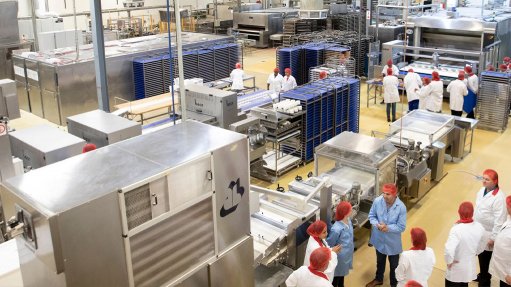
Food and beverage producer Libstar Group has further increased its competitiveness by expanding its facilities to meet client requirements by converting a section of the group’s Amaro Foods facility, in Epping, into a par-bake facility.
This strategic development was in line with global market trends where artisanal baking products were becoming a part of the daily food culture, the company said in a statement issued on Monday.
The artisanal bakery facility now produces a range of partially baked goods that are shipped to Woolworths stores around the country to complete the baking process.
The par-bake facility was launched in May and is one of 42 manufacturing plants owned by Libstar.
CEO Andries van Rensburg said Libstar aimed to supply innovative and value-added products to its customers and consumers.
“We focus on the low-cost manufacture of quality, innovative and value-added products for discerning consumers. These consumers have proven to be more resilient in the ever-weakening economy,” he commented.
He further pointed out that, in today’s competitive environment, it remained key to anticipate the needs of consumers to build loyalty to Libstar’s brands at the point of purchase and consumption.
“We continue to leverage our long-standing relationships with customers in the retail, wholesale, industrial and export channels to produce innovative products in partnership with them.”
Moreover, Amaro Foods CEO Tony Amaro highlighted the importance of predicting and quickly adapting to consumer trends, as well using opportunities for new product development.
“Consumers looking for artisanal products will now be able to find these in their regular shops and some fast food outlets,” he noted.
He added that par-baking was an economical way of offering freshly baked goods without the need for full in-house baking facilities.
“The technique involves partially baking dough and then rapidly cooling it. The retailer then completes the process. It allows for the production of a range of fresh artisanal breads and rolls.”
One of the key benefits of par-bake was the reduction of waste, Amaro said.
He said that, with fully baked goods, there was an expiration date which led to waste and loss of income for retailers.
However, par-baking allows retailers to better manage their stock and bake according to demand.
As well as reducing waste, the new facility also taps into the global demand for healthier food alternatives.
“Par-bake uses fewer ingredients, which is a healthier alternative to mass produced products,” Amaro commented.